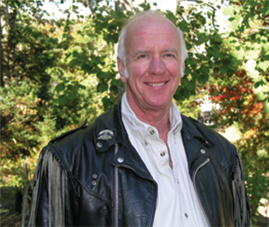Leadership Development Coaching By Saying No To Empowerment
04/01
Empowerment is not Leadership. When I empower you it is implied that I ‘give’ you power. What if it is simply wrong to believe that one person can ‘give’ power to another? What if all we can really do is restrict the use of another person’s power? Think a moment on how that changes things. Leadership development Coaching is massively different from Leadership empowerment.
In his great book (my opinion), Turn the Ship Around, David Marquet explains how empowerment is actually an insult, and recognizes the usual leadership model as the blah, blah that it can often be, and replacing it with the next round of evolution in how to be an effective leader. Wow! We need to wake up and smell this coffee. The old top down, command and control, the military model, can no longer compete. This from an ex-Naval Officer.
Empower needs to become emancipate, says Marquet. I say, Leadership development Coaching needs to be based upon this principle.
Quite a shift. And yes, we all need to get this. It is coming.
I googled the word ’emancipation’ and was shown the following definition: the act of freeing or state of being freed; liberation, freedom from inhibition and convention (note the word convention, the way we have always done it)
For empowered I was shown: give (someone) the authority or power to do something
Marquet addresses the idea of the ‘giving of power’ and points out that every individual is powerful when they are allowed to be. The kind of power here is the power of inherent genius, energy and creativity of every person. Leadership development Coaching is thereby a process of uncovering to see what the old paradigm of empowerment can accomplish compared to what the new paradigm of emancipation can accomplish, and to chose from there.
The element that allows one in authority to permit, even encourage, someone to be fully powerful, to use their innate abilities, is trust. I need to have trust of myself as the one in authority and trust that the other person is powerful enough to do the job well. Acknowledging the inherent talent of a person, helping to channel that through comprehensive training, and then invitation to use all of that power is the formula. Developing leadership becomes a conscious process of releasing the old paradigm and embracing the new. This is not to encourage reckless delegation. We do not give the controls of a large vehicle to a six year old. This is more about setting the scene so that another person becomes all that they can be.
Imagining this scene brings forth a range of objections, yet, if we look closely and with an open mind, the steps to establishing such a relationship start to become clearer. It is possible. Fundamental is that the person to be taking on the task must be completely clear on what the task entails and the end result required. They need to have been trained to do the task or at least in one way to approach it. They need to agree that they are ready to take it on. They must want it.
The only empowering needed is to reverse the disempowerment of the top down (do what you are told) paradigm that so many of us have experienced. The top down model of leadership is the convention that we need to be freed from (emancipated). Millenials get this and speak out. We may do well to listen.
You know you have accomplished what Marquet suggests, and I quote, “when you no longer have the ability to empower people because they are not relying on you as their source of power”. For related reading I recommend The Speed of Trust, Covey and The Power of Trust, Oldfield. What will you need from yourself in order to embrace this approach to Leadership development? What will you next explore with your own Coach?
Marquet led the USS Santa Fe from last to first in the nuclear submarine fleet. He did this without the options to fire or hire staff or offer bonuses or to increase salary. He has my attention.
Joseph Seiler MCC


